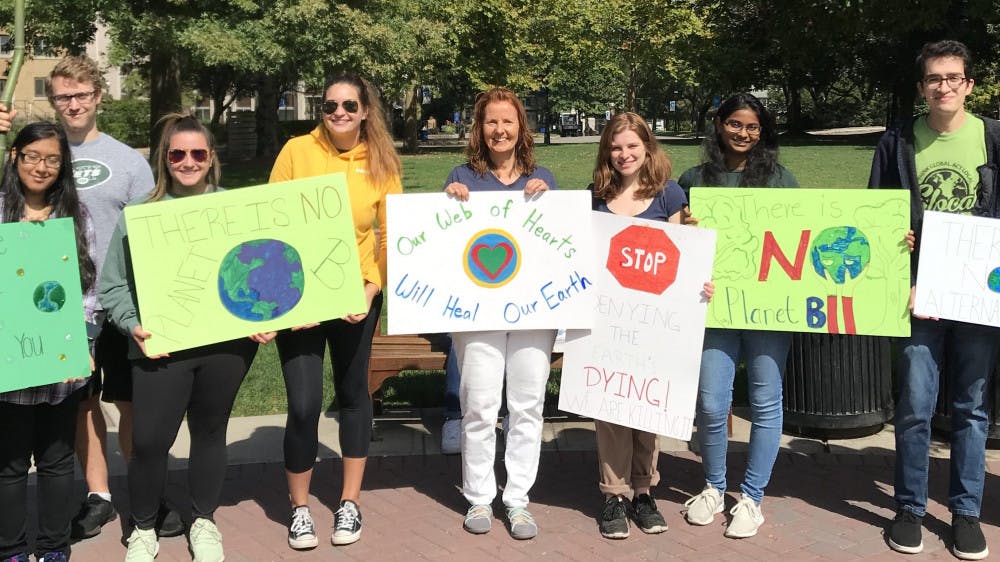A peaceful gathering in light of the Global Climate Strike took place on Sept. 20 around the Green.
At noon, students in the ecology club and Wanda Knapik, professor of environment studies, formed a “gratitude circle” around the Seal to “thank Mother Earth for beauty and abundance” and “pray for humanity to wake up to the current ecological crisis we are in,” Knapik said.
While protesting, the group surrounded a piece of artwork called a Mandala. Knapik organized the project by having her students from her class called “Sustainable Food Systems” assemble pinecones, seashells and bamboo sticks.
An hourglass symbol built from bamboo was positioned in the middle of the circle. Knapik explained that the Mandala represents extinction rebellion and that natural resources are slowly being destroyed.

Photo courtesy of Wanda Knapik
Students gathered around the Green to “thank Mother Earth for beauty and abundance.”
Knapik noted that 16-year-old Swedish teenager Greta Thunberg is the original climate striker.
She added that the elimination of single-use plastic cups and bags and Styrofoam will benefit the environment. Knapik suggested that eating a plant-rich diet and reducing meat consumption will improve the environment. Connecting with nature, respecting the Earth and being stewards of the planet for the future generation will motivate change, she said.
Ecology Club members shared the art of their posters for the Climate Strike. Kyle Gaydo, a junior English major, held a sign which said, “There is no Alternative.” He explained that he got the quote from Margaret Thatcher, and that it refers to capitalism, which destroys the world in his opinion.
“It is important to educate others about what is happening,” Gaydo said. “Change cannot happen if the majority is not willing to be educated on climate change issues.”
Shajeda Uddin, a junior environmental studies major, shared her poster which said, “Nurture the World That Nurtures You.”
“Take care of the world like it took care of you,” Uddin said.
The melting Earth in the poster represented polarized caps, the straining of the animals, humans, and natural resources. She advised people to follow the news online to understand what is happening with climate change.
“Recycling is the simplest action to conserve the environment,” Uddin adds. “Do not throw away paper or plastics.”
Kate Staley, a senior biology major, advised that turning off the lights would be the simplest thing to do to conserve energy. She added that reusable cups will help save extra plastic.
Alexa Coughlin can be reached at alexa.coughlin@student.shu.edu.





